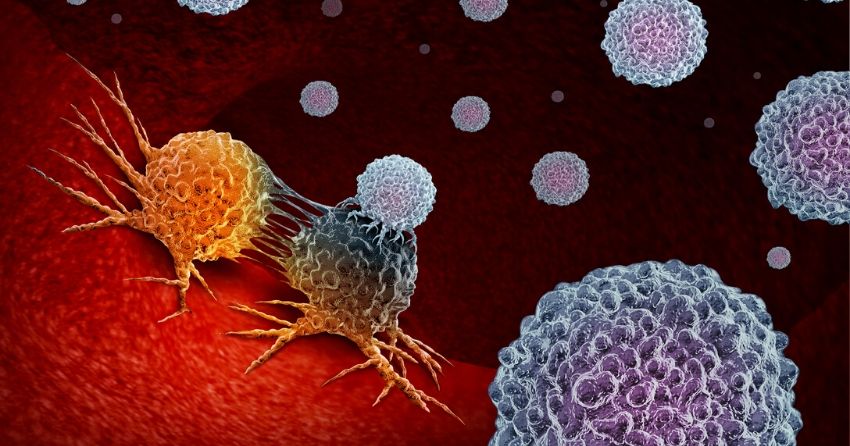Defective Immune Cells Accelerate Premature Aging

-
T cells, which protect us from pathogens, may speed up aging when they are defective.
-
When T cells lose function, they start producing more pro-inflammatory molecules, including tumor necrosis factor-alpha (TNF-alpha).
-
T cells may become defective due to mitochondrial dysfunction; mice with malfunctioning mitochondria had increased signs of premature aging and risk of infection
-
Mice who either received supplemental NAD+ or a drug that blocked TNF-alpha had improved health markers, which made them more active and strengthened their hearts.
This article was originally posted on Science Magazine News:
T cells are supposed to defend us from pathogens, but a new mouse study suggests they may also speed aging. Blocking inflammation caused by the cells or boosting their supply of a key metabolic molecule lessened the severity of some aging-related symptoms in rodents, raising the possibility these treatments could benefit older people.
The discovery is “a fantastic result directly linking metabolism, inflammation, and aging,” says immunologist Kylie Quinn of RMIT University, Bundoora, in Australia. “They’ve done a really thorough job of making sure it’s the T cells” that are causing the mice to age quickly.
Our T cells let us down as we age, becoming weaker pathogen fighters. This decline helps explain why elderly people are more susceptible to infections and less responsive to vaccines. One reason T cells falter as we get older is that mitochondria, the structures that serve as power plants inside cells, begin to malfunction.But T cells might not just reflect aging. They could also promote it. Older people have chronic inflammation throughout the body, known as inflammaging, and researchers have proposed it spurs aging. T cells may stoke this process because they release inflammation-stimulating molecules.
To test that hypothesis, immunologist María Mittelbrunn of the University Hospital 12 October’s Health Research Institute and colleagues genetically modified mice to lack a protein in the mitochondria of their T cells. This alteration forces the cells to switch to a less efficient metabolic mechanism for obtaining energy.
By the time the rodents were 7 months old, typically the prime of life for a mouse, they already appeared to be in their dotage, the team reports today in Science. Compared with typical mice, the modified rodents were slow and sluggish. They had shrunken, weak muscles and were less resistant to infections. Like many elderly people, they suffered from weakened hearts and shed much of their body fat.
T cells from the altered mice poured out molecules that trigger inflammation, the team found, suggesting the cells could be partially responsible for the animals’ physical deterioration. “The immune system plays a role in increasing the velocity of aging,” Mittelbrunn says.
The scientists also tested whether they could slow the aging clock. First they dosed the mice with a drug that blocks tumour necrosis factor alpha (TNF-alpha), one of the inflammation-inducing molecules that T cells unleash; the treatment increased the animals’ grip strength, improved their performance in a maze, and boosted the heart’s pumping power.
Mittelbrunn and colleagues also gave the animals a compound that raises levels of nicotinamide adenine dinucleotide (NAD), a molecule that’s vital for metabolic reactions that enable cells to extract energy from food. NAD’s cellular concentrations typically decline with age, and the researchers found that ramping it up in the mice made them more active and strengthened their hearts.
Drugs that inhibit TNF-alpha are standard treatments for diseases such as rheumatoid arthritis and Crohn disease, and several companies now sell compounds that boost NAD levels. “It would be a good idea to go for clinical trials” to determine whether targeting TNF-alpha or NAD could reduce some of aging’s effects, Mittelbrunn says.
However, other researchers question the relevance of the results for normal aging. As mitochondrial biologist Navdeep Chandel of Northwestern University’s Feinberg School of Medicine notes, the mitochondria in the genetically modified mice are much more severely impaired than are the mitochondria of many older people. “For most of us, I bet our T cells are OK.”
However, he says, T cells with malfunctioning mitochondria may contribute to aging in some people who appear to get old prematurely and develop age-related diseases when they are relatively young. This mechanism may be a factor “in the unhealthy 70- or 80-year-old.”
Molecular cell biologist Judith Campisi of the Buck Institute for Research on Aging agrees. The study “adds a new layer of understanding” about how the immune system changes with age, she says. “To what extent it mimics natural aging, I don’t know.”





